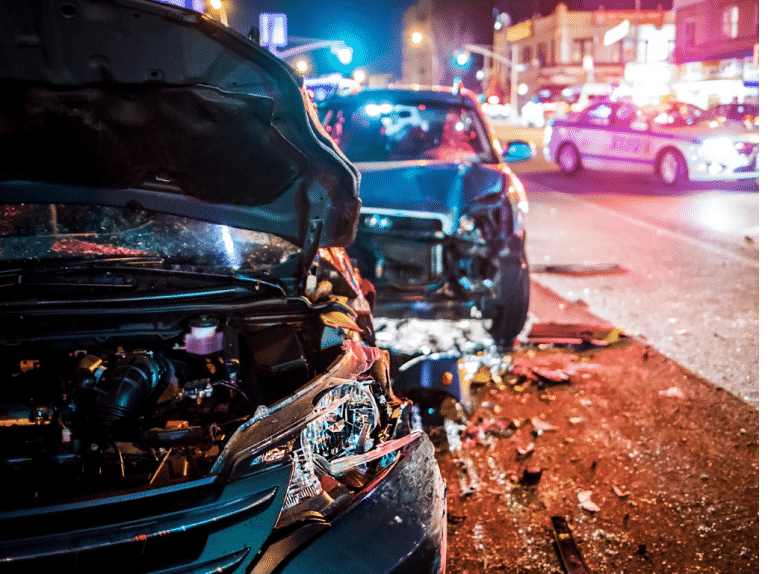Anxiety after a car accident is normal. If you’ve ever been in an accident, you know that it’s not just the physical injuries that leave a lasting impact. Even when you have minor injuries after a car accident, they may heal before your emotions do. If you’re afraid of getting behind the wheel again, you’re not alone. Emotional distress following a car accident happens to everyone. In fact, coping with the trauma and anxiety can often be more challenging than any physical injury you’ve received. Minor fender benders can leave you terrified to dive again. It’s certainly happened to us.
What is driving anxiety after a car accident
The moment of impact may stay with you for a long time. If you’re hurt, you have deal with the police who come to manage the accident and take statements as well as having to go the hospital. Coping with the pain and surgeries are two more traumas. Then there are the long days and weeks of physical recovery. You may have missed work, or can’t do your daily chores. The worse the accident, the greater the stress and trauma. Driving anxiety can happen simply when you’re too afraid to get back behind the wheel. You may have to deal with legal and insurance issues for months, even years. But what about driving itself? Surprisingly, the first day back on the road is not always the hardest. So what can you do about it?
The most effective thing to overcome driving anxiety after a car accident is to get help from the experts
You shouldn’t try to get through all the steps of healing alone. There are experts who are trained to help. For many people, the first steps are getting physical and emotional support, and talking to legal experts like auto accident lawyers in Livonia, or legal experts wherever you live.
Counselors and therapists also listen without judgement and give you emotional support and techniques to heal. Legal expertise helps you process the accident and manage all the financial ramifications, which make life so difficult following a car accident. So, here are some more tips to conquer your fear and anxiety.
When you’re ready to drive take someone with you
Those first few trips out on the road may be nail biters for you, but avoiding driving is not an option. If you’ve got young kids who need to get to school, or you work far from home or public transportation, you’ll have to find the courage to pick up your car key.
It can help to have someone with you in the car. Another person might make you feel safer. Or, if the drive is too long and you suddenly feel overwhelmed, you can always take a break and have the other person drive for you. Having a trusted friend or family member by your side will help you overcome social anxiety, another car accident side effect. After an accident, some drivers refuse to meet other people to avoid getting asked about their mishap. Who wants to endlessly explain what happened?
Exercise and stay active
If you’re rehabilitating from physical injuries, your doctor will advise you to stay active and exercise daily. Remember that exercise isn’t just good for the body, but for the mind as well. Physical movement has a host of benefits:
- Exercise eases out stress and mental fatigue
- Moving again may reduce feelings of anger and frustration
- Exercise provides give you a natural energy boost
Start with short drives
If you have the option, limit yourself to undemanding, short drives. You can liken the process to that of an athlete still recovering from an injury who has to take it easy.
Remember that you’re still working on regaining your confidence. So, take it easy. Don’t be too hard on yourself. If you find yourself feeling scared in the middle of the drive, take a small break and breathe. Once you feel more confident, you can slowly increase driving distances.
Get back to normal activities
Getting back to your regular routine and daily activities are an effective way to overcome fear and anxiety. Fulfilling tasks keeps your mind busy and gives you a feeling of accomplishment. Instead of focusing on your anxiety, focus on your schedule. Acknowledge that you were in an accident and give yourself a break, but know you are working towards getting back on your feet. Don’t underwhelm your schedule. Do what you can do comfortably, but don’t overdo.
So, get help from the experts to process, heal and manage the consequences. Move toward returning to normal activities at your own pace. Don’t limit yourself, but don’t do too much. Get behind the wheel when you’re ready, and with support to gain the confidence you need. You’ll get past this.
Related reading and additional resources:
- Say goodbye to the source of anxiety with a new vehicle.
- Charged with a DUI? Here’s what you should know.
- A few things you can learn from buying a new car.
If you love ROR content:
Check out 100
Tips For Growing Up
Follow us on Instagram
Like us on Facebook
Comment on our posts





















